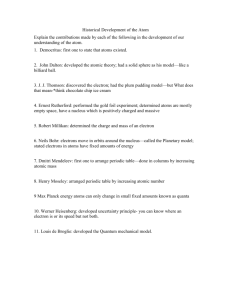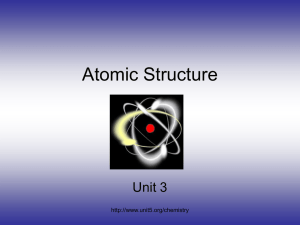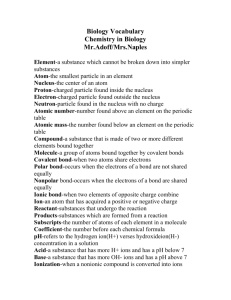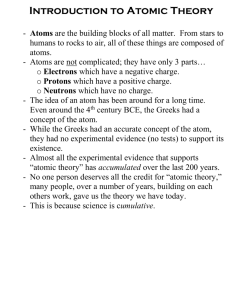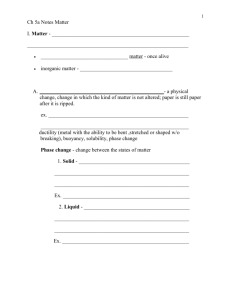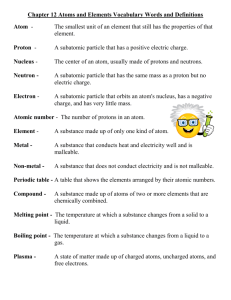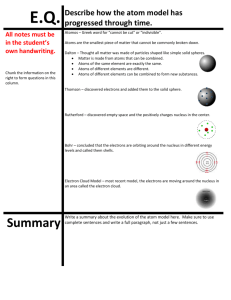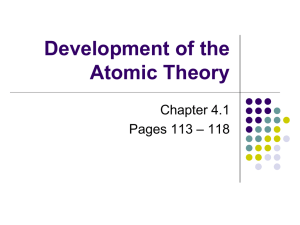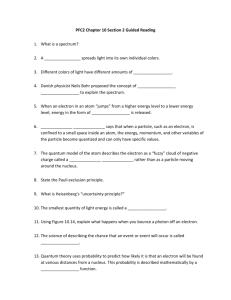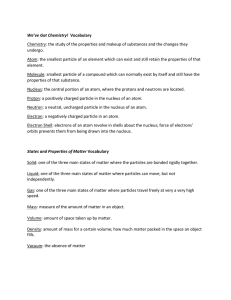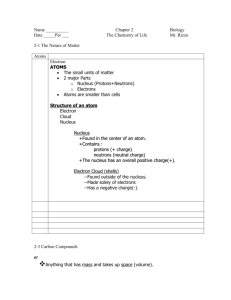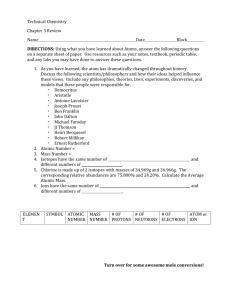Review Sheet
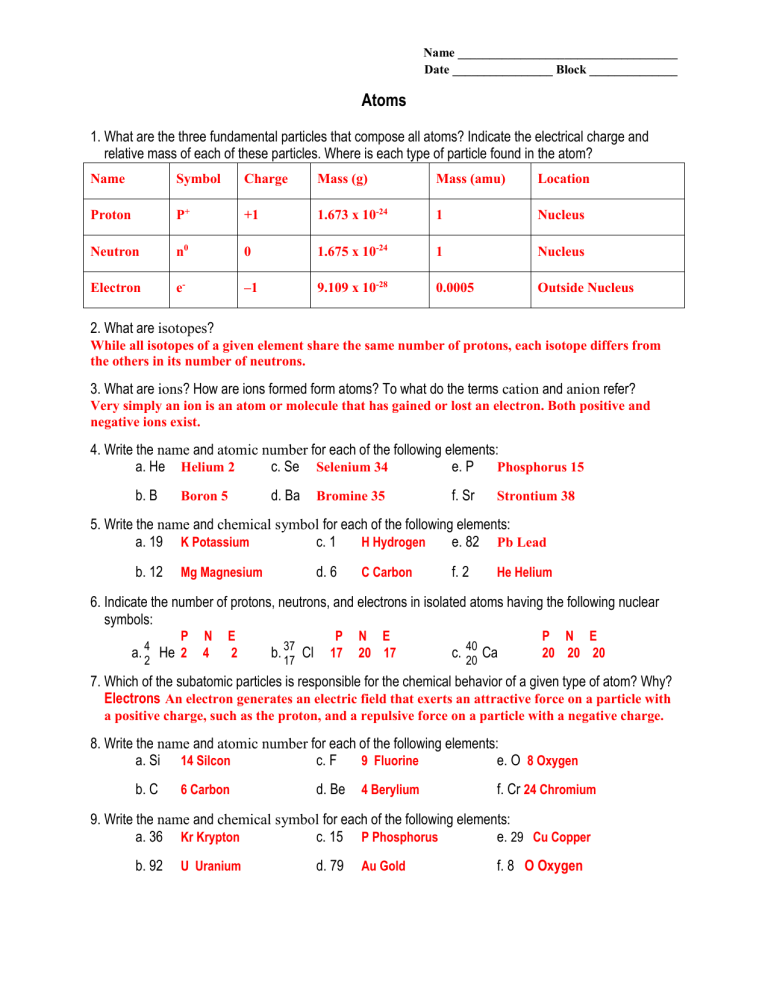
Name ___________________________________
Date ________________ Block ______________
Atoms
1.
What are the three fundamental particles that compose all atoms? Indicate the electrical charge and relative mass of each of these particles. Where is each type of particle found in the atom?
Name Symbol Charge Mass (g) Mass (amu) Location
Proton P + +1 1.673 x 10 -24 1 Nucleus
Neutron n 0 0 1.675 x 10 -24 1 Nucleus
Electron e –1 9.109 x 10 -28 0.0005 Outside Nucleus
2.
What are isotopes
?
While all isotopes of a given element share the same number of protons, each isotope differs from the others in its number of neutrons.
3.
What are ions
? How are ions formed form atoms? To what do the terms cation
and anion
refer?
Very simply an ion is an atom or molecule that has gained or lost an electron. Both positive and negative ions exist.
4.
Write the name
and atomic number
for each of the following elements: a. He
Helium 2 c. Se
Selenium 34 e. P
Phosphorus 15 b. B
Boron 5 d. Ba
Bromine 35 f. Sr
Strontium 38
5.
Write the name
and chemical symbol
for each of the following elements: a. 19 K Potassium c. 1 H Hydrogen e. 82
Pb Lead b. 12 Mg Magnesium d. 6 C Carbon f. 2 He Helium
6.
Indicate the number of protons, neutrons, and electrons in isolated atoms having the following nuclear symbols:
a. He
P N E
2 4 2
37
17
P N E b. Cl 17 20 17
40
20
P N E
20 20 20
7.
Which of the subatomic particles is responsible for the chemical behavior of a given type of atom? Why?
Electrons
An electron generates an electric field that exerts an attractive force on a particle with a positive charge, such as the proton, and a repulsive force on a particle with a negative charge.
8.
Write the name
and atomic number
for each of the following elements: a. Si 14 Silcon c. F 9 Fluorine e. O 8 Oxygen b. C 6 Carbon d. Be 4 Berylium f. Cr 24 Chromium
9.
Write the name
and chemical symbol
for each of the following elements: a. 36 Kr Krypton c. 15 P Phosphorus e. 29 Cu Copper b. 92 U Uranium d. 79 Au Gold f. 8 O Oxygen
10.
Calculate the atomic mass of the elements listed below. Assume the isotopic composition of each is as given below. a. 99.985% 1 H; 0.015 % 2 H b. 7.42% 6 Li; 92.58% 7 Li
Omit c. 20.52% 70 Ge; 27.43% 72 Ge; 7.76% 73 Ge; 36.54% 74 Ge; 7.76% 76 Ge
Omit
